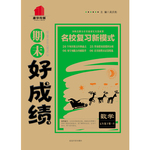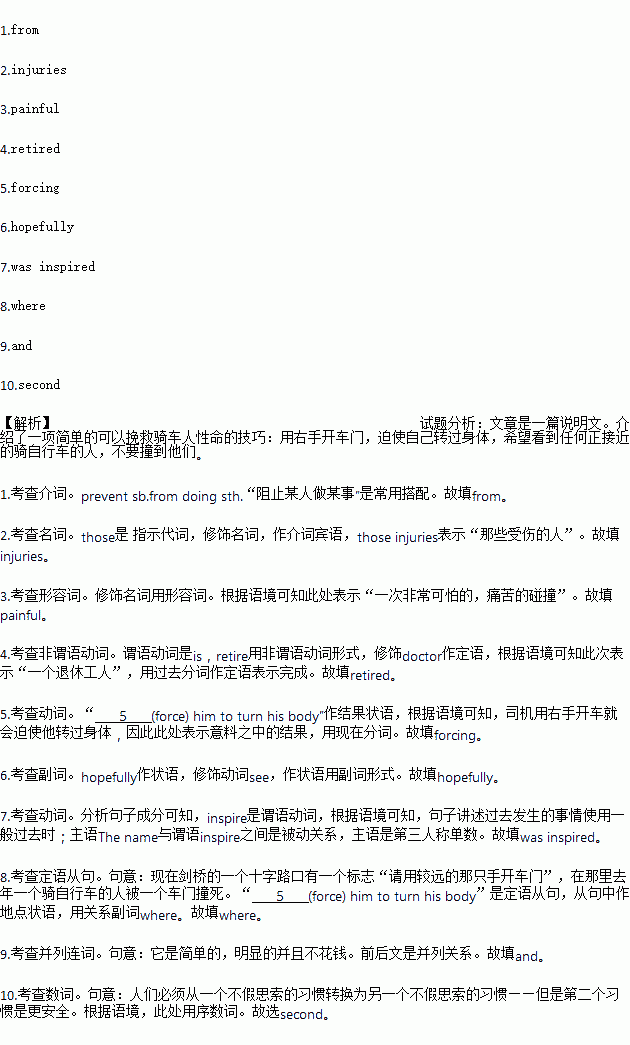题目内容
The Simple Technique That Could Save Cyclists' Lives
It's called the Dutch Reach, and if a Massachusetts doctor has his way, it could prevent road riders 1.ever getting doored again.
Last year, some 45,000 bicyclists were injured on the road, according to the U.S. Department of Transportation. And ten percent of those 2.(injury)were the direct result of the rider getting doored: a supremely terrifying, 3.(pain)collision where a driver opens his door immediately in front of a cyclist.
Michael Charney, a 70-year-old 4.(retire) doctor from Cambridge, Massachusetts, is spearheading a grassroots campaign to end dooring forever. The campaign promotes the Dutch Reach—a technique where a driver reaches over with his right hand to open the car door, 5.(force) him to turn his body, look over his shoulder—and 6.(hopeful) see any oncoming cyclists.
The name 7.(inspire)by the bike-friendly Netherlands, where drivers are required in their driving exams to open car doors with their right hands. Charney hopes this potentially life-saving technique will be adopted in the U.S. It’s already picking up some de facto (实际存在的)steam; there’s now a sign at an intersection in Cambridge 8.a cyclist was killed last year by a car door that reads, “Safer to open car door with far hand.”
“It’s simple, it’s obvious, 9.it costs nothing” Charney told The Boston Globe. “People just have to switch from one thoughtless habit to another thoughtless habit –but the 10.(two) one is safer.”
 冲刺100分1号卷系列答案
冲刺100分1号卷系列答案 期末好成绩系列答案
期末好成绩系列答案
